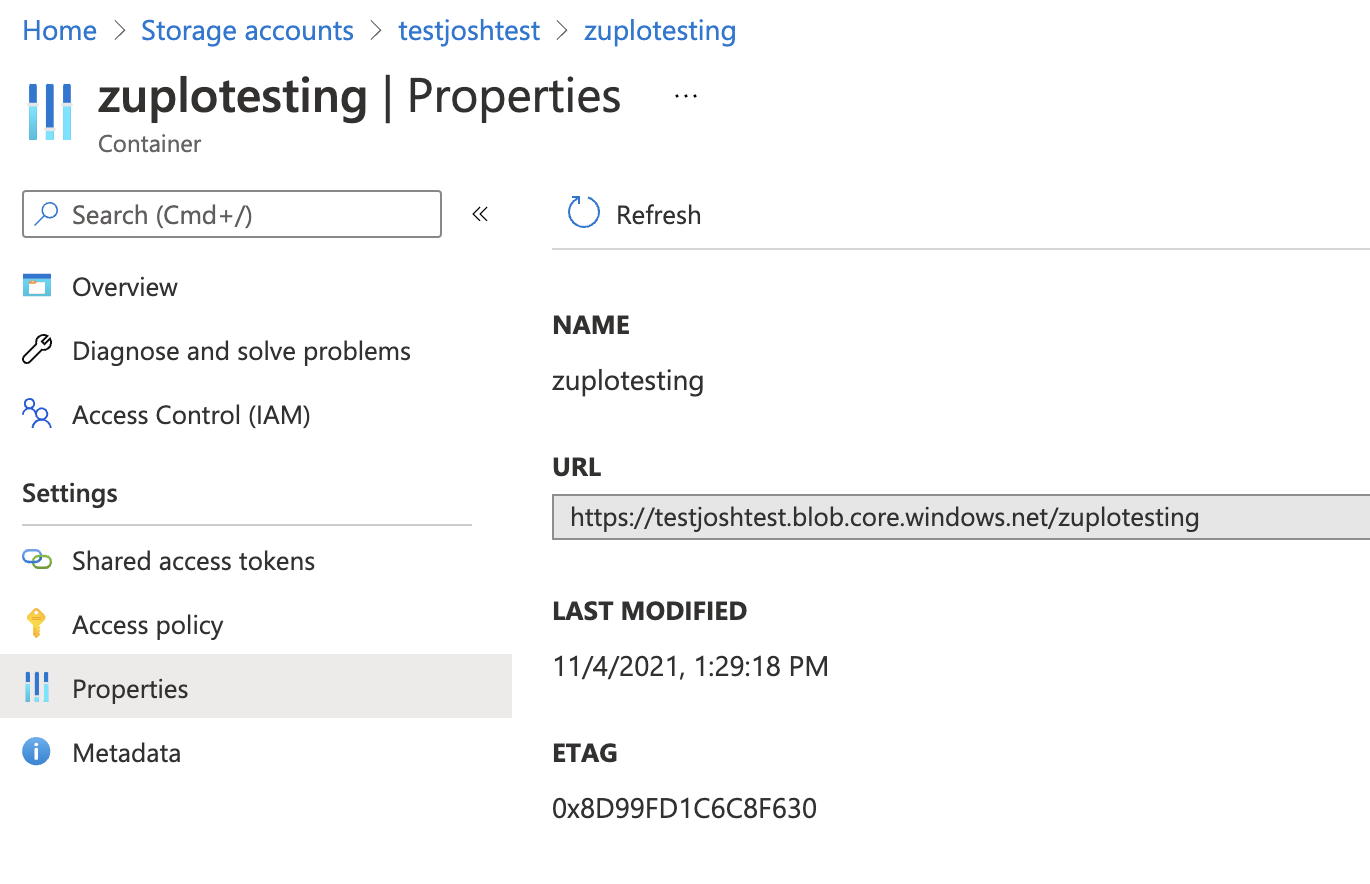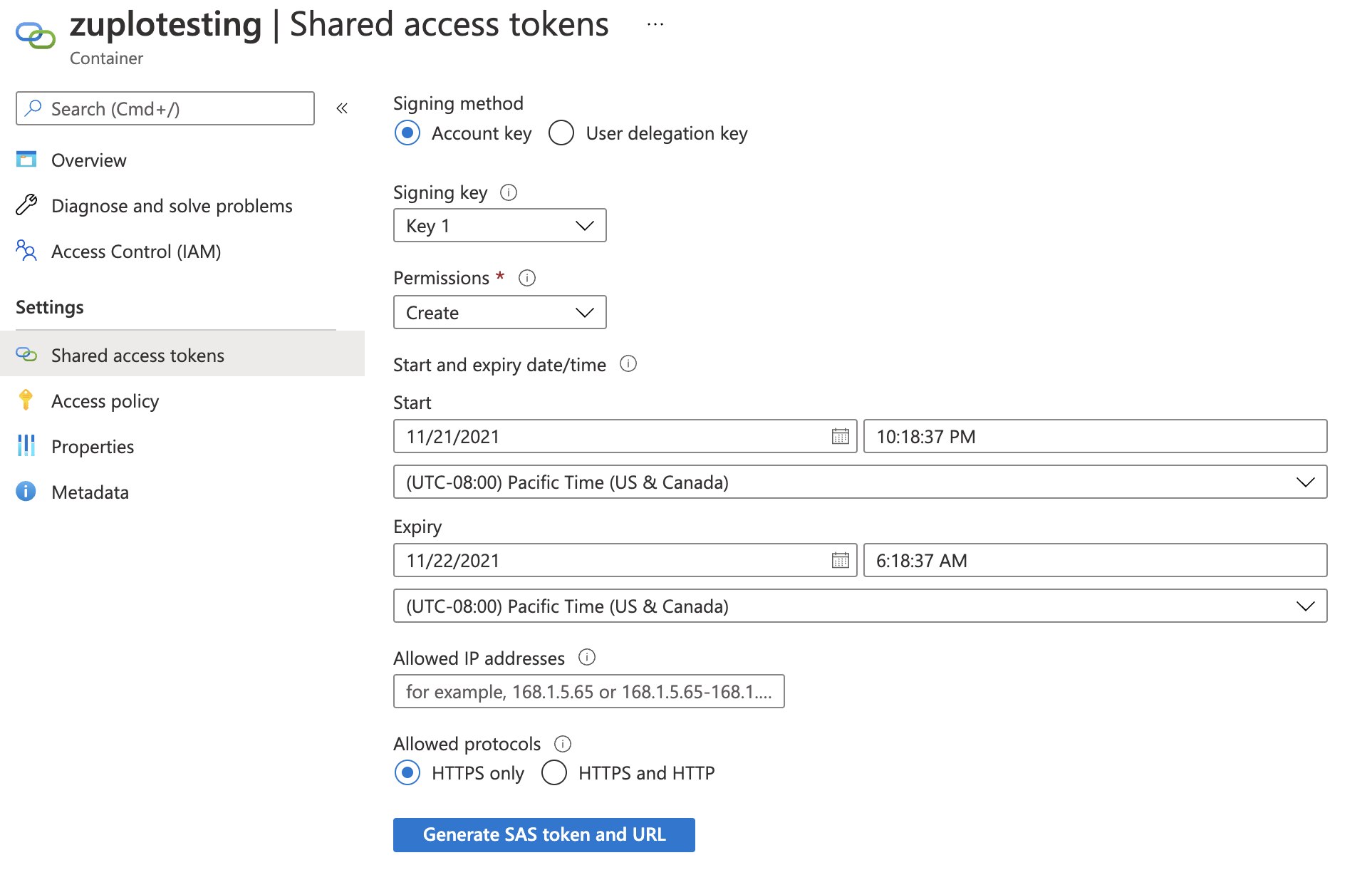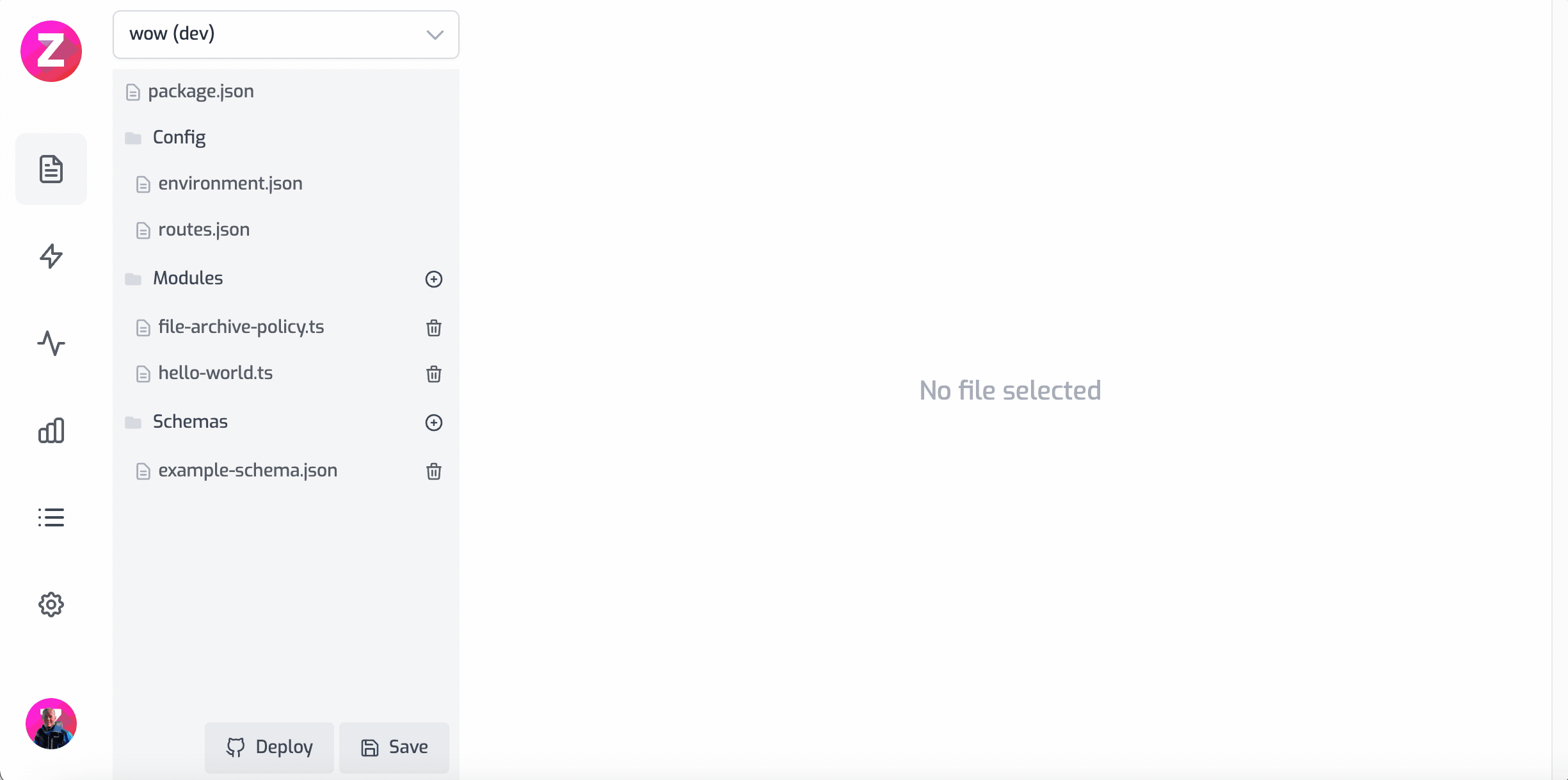Note - this sample uses Policies, read this guide first.
In this sample, we'll show how you can archive the text body of incoming requests to Azure Blob Storage. We also have a post on Archiving to AWS S3 Storage.
First, let's set up Azure. You'll need a container in Azure storage (docs). Once you have your container you'll need the URL - click the Properties tab of your container as shown below.

This URL will be the blobPath in our policy options.
Next, we'll need a SAS (Shared Access Secret) to authenticate with Azure. You
can generate one of these on the Shared access tokens tab.
Note, you should minimize the permissions - and select only the Create
permission. Choose a sensible start and expiration time for your token. Note, we
don't recommend restricting IP addresses because Zuplo runs at the edge in over
200 data-centers world-wide.

Then generate your SAS token - copy the token (not the URL) to the clipboard and
enter it into a new environment variable in your API called BLOB_CREATE_SAS.
You'll need another environment variable called BLOB_CONTAINER_PATH.

Note - production customers should talk to a Zuplo representative to get help managing their secure keys.
We'll write a policy called request-archive-policy that can be used on all
routes.
file-archive-policy.ts
Finally, you need to configure your policies.json file to include the policy, example below:
Code
Don't forget to reference the file-archive-policy in the policies.inbound
property of your routes.
Here's the policy in action:
